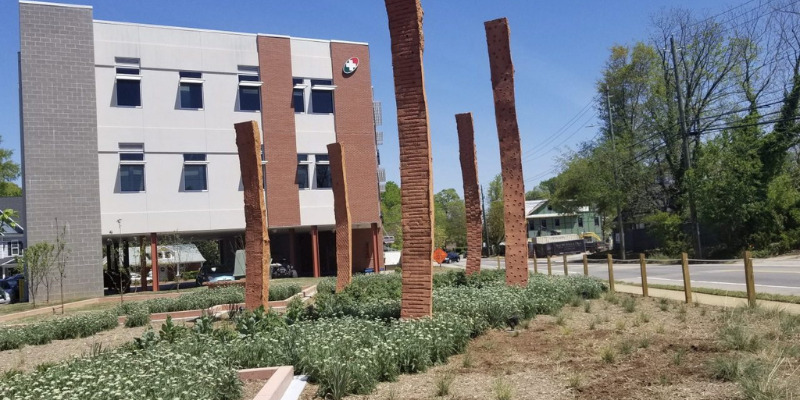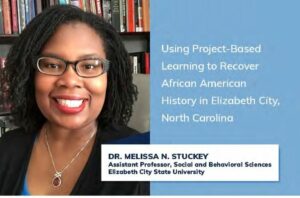Engaging undergraduates in transformative learning.
From fall 2020 - 2025, Student Learning to Advance Truth and Education (IAAR-SLATE) was an initiative designed to engage undergraduates. It created a dynamic, robust, and transformative environment that centered around learning about economic, social, and historic driving forces through evidence-based, interdisciplinary, and community-engaged ways of knowing. Focused on a variety of faculty-driven topics, IAAR-SLATE provided students with novel learning opportunities through three program components: research, coursework, and community-led experiences.SLATE has been a bold,
five-year, pan-university initiative. From its inception, SLATE set out to deepen academic engagement across the university, and it has truly delivered:
• Recruited 74 faculty members for its teaching component
• Reached 4,267 students in over 150 university courses
• Awarded 54 undergraduate research fellowships
• Engaged 26 faculty mentors for summer research
• Connected students and faculty across 10 schools, including Arts & Sciences, Education, Public Health, Journalism, Business, Nursing, Social Work,
Nutrition, Government, and Medicine.
Coursework Component
IAAR-SLATE’s Coursework Component built a network of courses to engage the program’s topics through student classroom experiences. For 2020-2021, more than 25 faculty connected their courses to IAAR-SLATE by agreeing to include on their syllabi three shared, intersecting assignments across all IAAR-SLATE courses. They were a way to connect students across diverse classes, expanding the dialogue beyond a single classroom. Additionally, through a variety of convenings and activities, students in IAAR-SLATE courses had an opportunity to meet authors, filmmakers, and other special guests directly related to the material assigned in their classes.
Research Components
All IAAR-SLATE components were informed and shaped by research, but our Research Component allowed a selected cohort of students to pursue original, independent, scholarly research on a topic of their choosing during the summer. Students’ research was guided by a UNC faculty member, whose own research IAAR-SLATE also supported during the summer. In the Fall, students presented their research at an undergraduate research symposium open to the entire campus and broader community.

 participated in several projects and events related to local African American history in Elizabeth City, N.C. under the direction of Dr. Melissa N. Stuckey. Elizabeth City has been the site of nationally significant events occurring from the era of slavery through the Civil Rights movement. In spite of this, the city and region rarely get more than passing mention in scholarship about African American history. Dr. Stuckey will highlight her use of project-based learning and public engagement that has resulted in building up the archive of source material available for the study and public awareness of African American history in Elizabeth City.
participated in several projects and events related to local African American history in Elizabeth City, N.C. under the direction of Dr. Melissa N. Stuckey. Elizabeth City has been the site of nationally significant events occurring from the era of slavery through the Civil Rights movement. In spite of this, the city and region rarely get more than passing mention in scholarship about African American history. Dr. Stuckey will highlight her use of project-based learning and public engagement that has resulted in building up the archive of source material available for the study and public awareness of African American history in Elizabeth City.